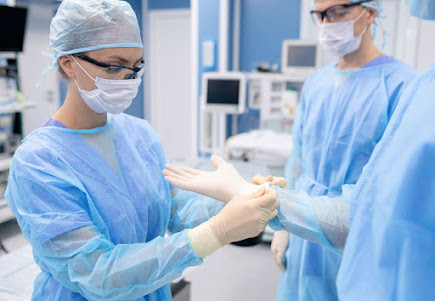Learn about the different types of clinical experiences available to nursing students and how to make the most of them. Get tips on preparing for clinical rotations and supervised patient care.
- 1. Introduction
- 2. Types of Clinical Experiences
- 3. Preparing for Clinical Experiences
- 4. Making the Most of Clinical Experiences
- 5. Conclusion
1. Introduction:
As a nursing student, you will have the opportunity to gain
hands-on training in a healthcare setting through clinical experiences. These
experiences are an essential part of your education, as they will help you
develop the skills and knowledge needed to become a successful nurse. However,
it's natural to feel a bit nervous or uncertain about what to expect. In this
article, we'll explain the different types of clinical experiences available to
nursing students and provide tips on how to prepare for and make the most of
them.
2. Types of
Clinical Experiences:
Clinical Rotations: During clinical rotations, you will be
placed in various healthcare settings, such as hospitals, clinics, and
long-term care facilities, to gain experience in different areas of nursing.
Examples of rotations include medical-surgical, pediatrics, obstetrics, and
psychiatry.
Supervised Clinical Practice: This type of clinical
experience involves working with patients under the supervision of a licensed
nurse. You will have the opportunity to practice the skills you have learned in
the classroom and apply them in a real-world setting.
Clinical Simulations: Clinical simulations are designed to
mimic real-world scenarios, such as patient care or emergency situations. These
simulations provide you with a safe and controlled environment to practice your
skills and make mistakes without risking harm to actual patients.
3. Preparing for
Clinical Experiences:
Review the material covered in your classes. Before starting
your clinical experiences, it's important to review the material covered in
your classes to ensure you have a solid understanding of the concepts and
principles.
Familiarize yourself with the healthcare setting and the
patients you will be working with. This will help you feel more comfortable and
confident when you start your clinical experiences.
Make sure you have all the necessary equipment and uniforms.
This includes a stethoscope, blood pressure cuff, and any other equipment required
by the clinical site.
4. Making the
Most of Clinical Experiences:
Ask questions and seek feedback. Your clinical instructor and
the licensed nurses you work with are valuable resources. Don't be afraid to
ask questions or seek feedback on your performance.
Take notes and reflect on your experiences. Keeping a journal
or notes on your experiences can help you remember important information and
reflect on what you have learned.
Take advantage of opportunities to practice your skills. Take
every opportunity to practice your skills and become proficient in them.
5. Conclusion:
Clinical experiences are an essential part of your nursing
education.



0 Commentaires